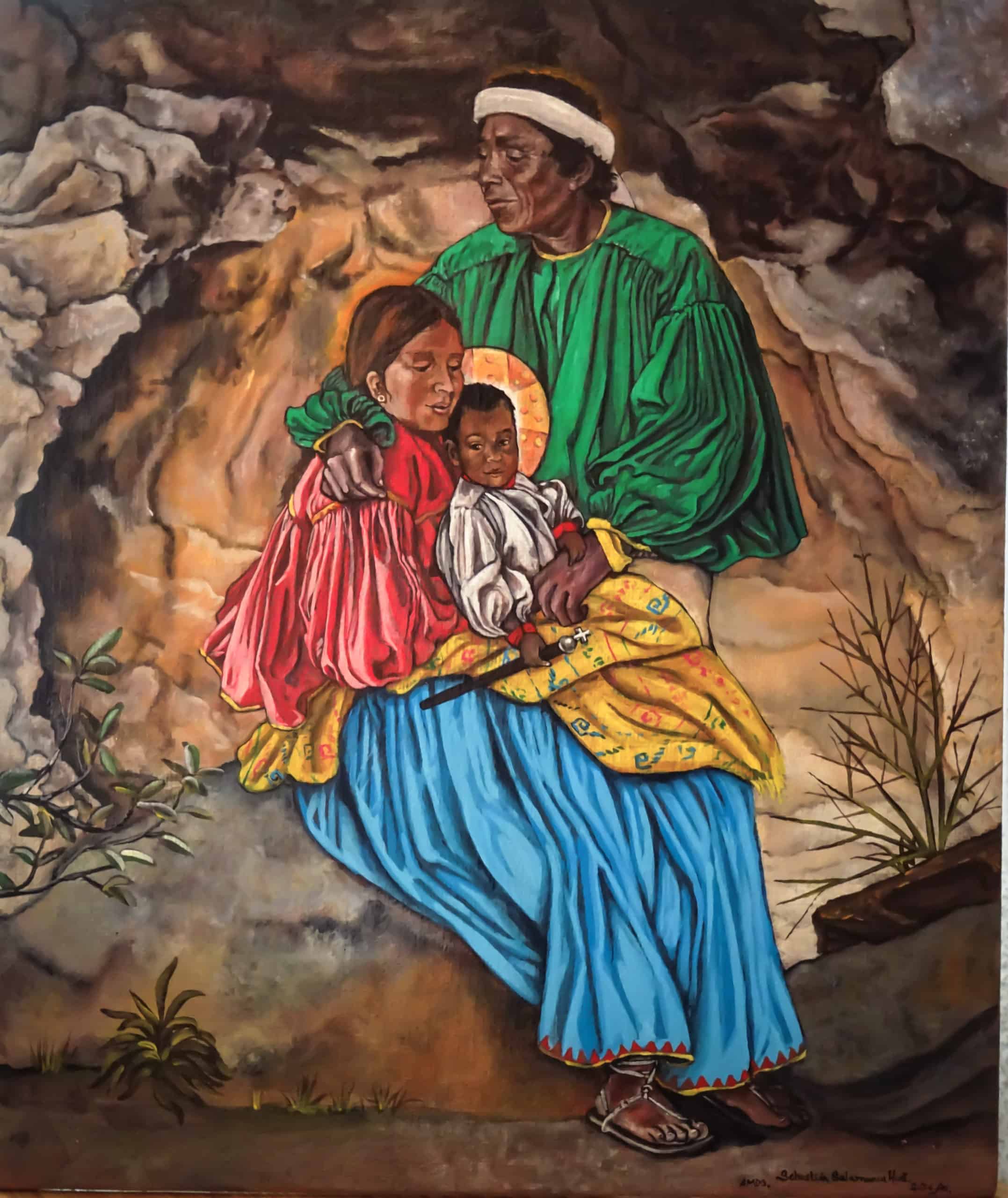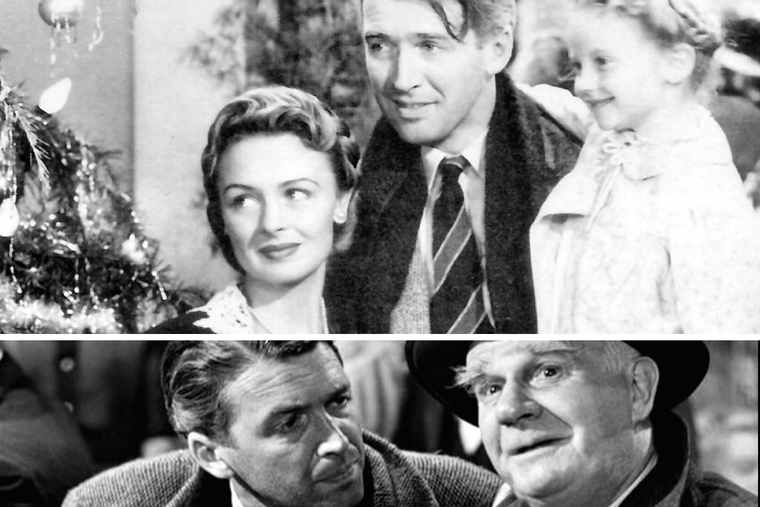Christmas 2022: Homily offered by Rick Malloy, S.J.
Christmas Homily 2022
Rick Malloy, S.J.
“The Logos was God, and the Logos was in communication with God.”
- Benedict XVI
Little kids’ Christmas play. Cool 7-year-old Billy trumpets: “I bring
Gold.” Bobby, six, yells: “I bring myrrh.” Barney, five, and always a little discombobulated,
says “Frank sent this.”
What is brought to us as Jesus is born again in our
lives and in our World? What will we send
as a result of the Incarnation? To whom
shall we send it?
First, Let me say something about the WORD, the LOGOS. Second, Something about a Christmas Song. And Third, something about The Letter, the documentary that aired on PBS the other night. It’s about the encyclical letter, Laudato Si, on the climate crisis. Pope Francis sent Laudato Si in 2015. He addressed it to the whole world. We all must find ways to respond to this crisis. Finally, there will be a final suggestion….
1. LOGOS. This Christmas, we need truth and hope more than ever. THE WORD, THE LOGOS, is truth. THE WORD is not just in touch with reality, or just corresponding to reality. THE WORD creates and sustains reality, permeates, and penetrates all the pulsating beauty and bodacious being of existence. The Logos might better be translated “the reason for existence.” The “Purpose of our lives.” The “Why we are here” is born in the baby in the manger. We are born to praise reverence and serve God and be happy with God and all our loved ones forever. This life is a prelude to life eternal.
THE WORD has become human, and we see the glory, the glory of the Lord and the glory of “the human person fully alive.” THE WORD takes on our human being and transforms us, giving us grace upon grace upon grace (John 1:16). In Greek, grace is charis, from which we get the word charism, meaning a divine gift, a transcendent power. Thomas Aquinas says grace is the ability to do what we could not do before.
And in this grace, the gift of God, we find hope. We find purpose. We find love. And we and our worlds are transformed. With this grace we are gifted with Peace. We need to accept and actualize the gift of grace, this ability to make Peace in our world, in our communities and families and in our hearts.
2: Christmas Songs: Now the Today show reported the other day
that the most played Christmas songs are: #5 It’s the Wonderful time of year
#4 Jingle bell Rock #3 Rudolph #2
Rock christmas tree #1 All I want is You. But
the song we really need to hear is “Do You Hear What I Hear.”
“Do you hear What I hear” was written in 1962 by a husband-and-wife
song writing team. They wrote it in
response to the Cuban Missile Crisis of October 1962. As we watch the horrors and atrocities
happening right now in the Ukraine, we have to ask the first question of the
song. Do you see what I see? Do we see what’s happening on our Southern
Border as Central American countries descend into chaos.
Do we hear what the lamb says to the shepherd boy,
that there is a song high above the trees with a voice as big as the sea? That song sends the shepherd boy to the mighty
king. The boy tells the King of a child
who shivers in the cold. He calls for
the king to bring silver an gold, the wealth of the kingdom to the aid of the
poor. And the King hears and calls the
people to pray for peace everywhere. Let
the child bring us goodness and light.
So much to hear in this song. Peace.
Care for the poor. Listen and pay
attention to the deeper meanings of the Christmas story, the gift and grace of
the LOGOS among us. The call to care for
everyone, and the images of nature in the song.
Night wind. The voice as big as
the sea.
3.
THE LETTER: We need to pray for peace. We need to call those who control our
political economy to care for the poor and desperate among us. Even more as we listen this Christmas, we need
to hear the cry of the earth. That cry is expressed in a documentary which
aired on PBS.
The Letter is a beautiful meditation on people from
all over the earth who Pope Francis invited to the Vatican for a conversation
about how climate change is impacting their lives. A woman from Ireland, a indigenous chief from
the Amazon, a kid from India, a man from Senegal who breaks down weeping when
telling about flood and rising tides destroying the village where he and his
family and friends live. The Letter
brings home the impact of climate change on peoples lives.
What can we do?
This year I suggest we all investigate the problems and challenges of
climate change. Maybe think about changing
our diet and living a more planet friendly way of eating. Maybe find small ways to lessen our global
footprint. Buy stuff from eco friendly
corporations.
Dan Berrigan, S.J., the anti-war activist during the
Vietnam war and throughout his life once said: “No one can do everything, but everyone
can do something. And the moral difference
between doing something and doing nothing is monumental indeed.”
Finally, one other suggestion. Let’s Forgive. This year, as Jesus comes to reconcile us to
one another, let’s forgive one another. Greg
Boyle is a well know Jesuit who runs Homeboys Industries in LA helping gang members
escape the gang life, and helping the incarcerated get reintegrated into
society after serving prison sentences.
His new book is Forgive Everybody.
Maybe get to the sacrament of reconciliation, confession. It’s good for the soul, and the world.
Jesus told us to “do this in memory of me” and we
celebrate Eucharist daily. Jesus also
taught us to pray and the only command in the prayer is to “forgive those who trespass
against us.”
Arnold Schwarzenegger’s daughter, Katherine Schwarzenegger
Pratt (I think her husband is a movie star) has a wonderful book, The Gift
of Forgiveness: Inspiring stories from those who have overcome the unforgivable. She tells of people like Sara Klebold, the
mother of one of the Columbine Killers. Imacullée
Ilibagiza here tells of how she overcame he hatred for those who killed her family
and millions of others with machetes in the Rwandan genocide of April 1994. Hate filled rhetoric built into a holocaust
with horrific consequences. We need to
tone down the truly alarming increase of hate speech in our society. We need to listen to Christ’s call, “that we
all be one.”
The Eucharist, the Mass, is the miracle and mystery
of our faith. When we take bread and
wine and pray, the awesome reality of the power of God in our lives, the power
to save us is present. The power to
rescue us from all sin and suffering.
The power to open ourselves and our world to transformation in
Christ.
“Frank” didn’t send this. God sent this.
God becomes one of us, baby bald and vulnerable in the manger where
animals munch their meals. This Lord and
savior remains among us as Eucharist, love incarnate, Emmanuel, God with
us. Let us realize and relish once again
this amazing and loving God. God is
love. Let’s forgive and love one another. Let us pray.
Do
You Hear What I Hear?
Said the night wind to the little lamb,
do you see what I see
Way up in the sky, little lamb,
do you see what I see
A star, a star, dancing in the night
With a tail as big as a kite
With a tail as big as a kite
Said the little lamb to the shepherd boy,
do you hear what I hear
Ringing through the sky, shepherd boy,
do you hear what I hear
A song, a song, high above the trees
With a voice as big as the sea
With a voice as big as the sea
Said the shepherd boy to the mighty king,
do you know what I know
In your palace warm, mighty king,
do you know what I know
A Child, a Child shivers in the cold
Let us bring Him silver and gold
Let us bring Him silver and gold
Said the king to the people everywhere,
listen to what I say
Pray for peace, people everywhere!
listen to what I say
The Child, the Child, sleeping in the night
He will bring us goodness and light
He will bring us goodness and light
Labels: catholic, Christmas, Christmas homily, Do You Hear What I Hear, faith, hope, Incarnation, jesuits, love, pope francis, The Letter







